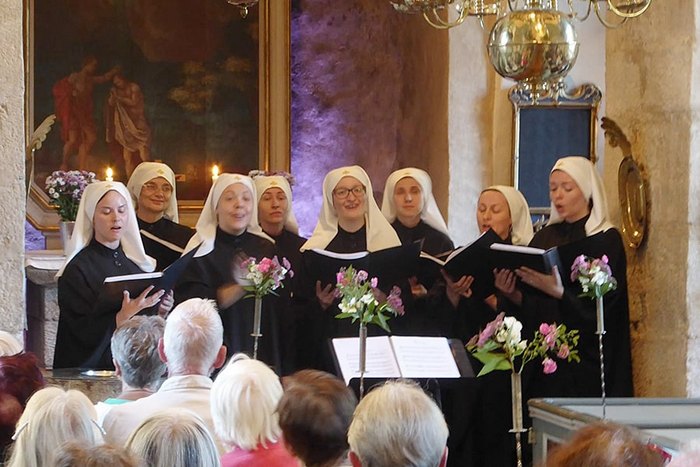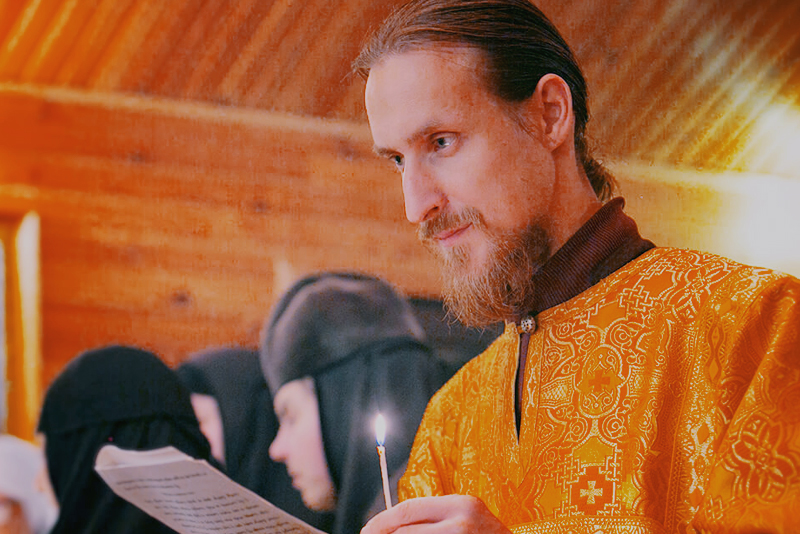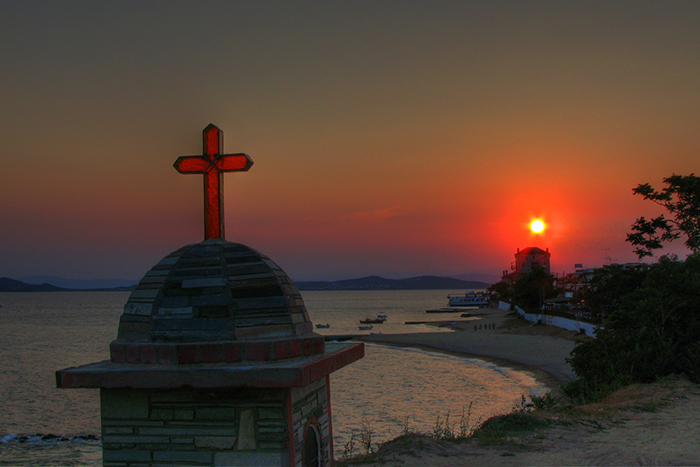
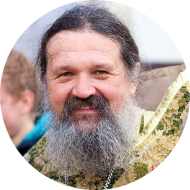
We continue our celebration of life, our celebration of the victory over death.
We suffer much in this world, we have many trials, diseases, losses: In the world ye shall have tribulation (Jn. 16:33). But no matter how hard it is for us, we know there is another life, there is something that gives us the possibility of bearing our cross to the end—the fact that the Lord loves us.
If we know that the Lord loves us, we can only say: “And we love You too.” But, of course, it is premature to say this now. We want to learn to love You, and thus we have come to church, thus we make a little effort. We want to conquer sin, which justifies itself, which says that we cannot live otherwise, that everyone lives this way, with wolves, howling like a wolf. This is what the world teaches people. No. Had St. Seraphim of Sarov lived with wolves, the wolves probably would have become gentle puppies. And bears also would not growl so strongly. That’s why we can’t say this…
We live with God. And when we lose God, we find ourselves in the void. But holy places are never empty—they are filled with sin. And then we say: “Oi, where is that joy, that person in whom I saw beauty? I loved that person; he was so beautiful and noble, and suddenly he became such a scoundrel, a sneak… Where did he get to? Did he die?” Or did I die? That is the question.
We have to correctly understand why we have come to church. I think in the beginning, we don’t understand anything, as, generally, in everything in life—starting a family, going to a monastery. We have some kind of movement—I’m going here, I’m going to do this… Then we begin to realize that everything is absolutely not as it seemed to us, that it’s a completely different load, has a completely different meaning. And it’s very difficult for us to reconcile with this—that’s how I saw it, I really liked it, and now I don’t like that I’ll be living with this person; what for? What am I, some kind of fool? But a promise is a promise.
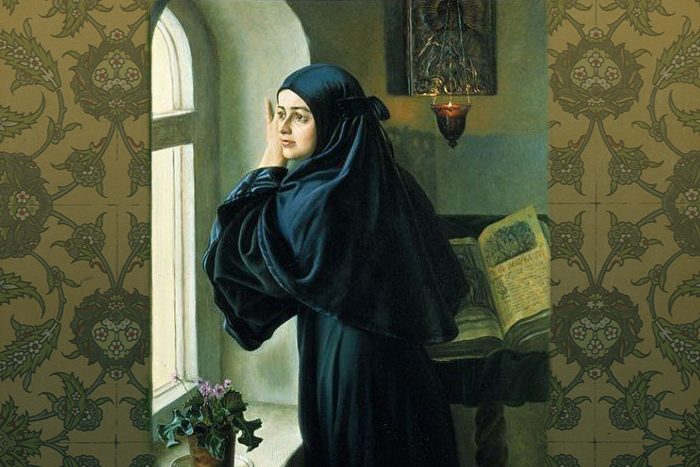
We come to church and we think: “Oh, this is it, the Lord brought us here in His hands… It’s so beautiful here, so good! Amazingly good…” We’ve probably all experienced that moment when we truly need nothing more, we only want to be with God and that it’s—there are no problems. I am speaking of myself, how I lived through some moments long ago… And then suddenly everything changed: I didn’t like church, it was hard for me; I didn’t want to go anymore. But you understand what it’s all about… I can’t forget how good it felt! And no matter how I tried to find this joy in something else, I won’t find it in anything else. Only in God can I find this joy. But I can’t get away from it; I have nowhere else to go. If someone could give me that joy that God gave me… But all of our joys are very fragile and temporary and can quickly crumble: one word, one look, one thought, a suspicion—and that’s it. Where is your joy? You don’t have it. Because it is not God’s joy, but human, mental.
Therefore, it’s very important that we understand that the Lord ascends to Heaven and then comes to us by the Holy Spirit and makes us able to gradually climb higher, above any petty squabbles, above any problems. Fr. Sophrony (Sakharov) would tell his monks: We’ll never be able to live in such a way that we won’t have any small, everyday problems, but we have to look above—to the main thing. And therefore the Lord teaches us: But rather seek ye the Kingdom of God; and all these things shall be added unto you (Lk. 12:31). This sister is like this, this one like that, this one is stupid, this one stubborn, but they were gathered by the Lord, and who am I? My husband doesn’t ever help me out, my wife doesn’t fit in anywhere; she’s not a homemaker, she doesn’t smile, she doesn’t have any pity… What can we do? Change? Look for something? What will you find in this world? You won’t find anything. We have to change ourselves.
You see, if we change ourselves, everything around us will become brighter, cleaner, and we will see other people, even those closest to us, more beautiful, perhaps, than we ever saw them before. But why will we be able to see them that way? Because the Holy Spirit will be within us, Who purifies us from all defilements, Who gives us the possibility to see God around us and above all, in our neighbors. Why did people go to some old, sick people, wanting to speak with them and hear a word from them? Because these people had the Holy Spirit, had God. Such a person may not speak much, but when he says two words to you, that it’s good to be alive—you believe him more than yourself: Indeed, it’s good to be alive! You didn’t want to live anymore, you were sick of everything, you condemned everything… And then when this person says: “What good, noble people they all are!”—you think: “Indeed, what was I thinking, that everyone is bad? They’re all wonderful and beautiful people. I have to love them; I just have to not offend anyone.”
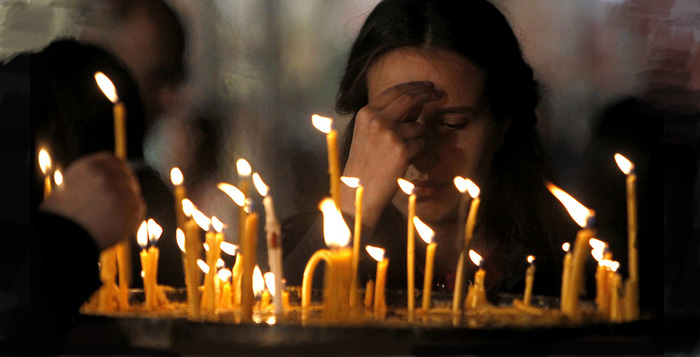
Therefore, if the Holy Spirit is in you, there will be so much love around you! People will want to be with you. But when someone does not have the Holy Spirit, then everyone wants to get away from him quicker… And we have no spirit to help this person compensate for his lack of love, his sin. This is also a problem. We have this problem at the podvoriye all the time. People who have spent their entire lives behind bars do not change in one day, in one year. It’s a fairytale. We have to love them. But to love means to die to sin, to our ego, and that’s very difficult. It’s like in a family. If you want to have a family—die. Die for the sake of another, and then you will have a family. And if you want things to be convenient and comfortable for you, you didn’t find the right way to go…
Christ doesn’t lead us somewhere where it will be warm and light. It will be difficult, but there will be a real struggle and real victory there. And victory is resurrection; it is victory over our sins and over the devil who controls this sinful world. We have a king—the Heavenly King, and we must bow to Him, we must serve Him, and no one and nothing can separate us from the love of God—no one and nothing if we ourselves do not turn away from God and do not hide from Him. Remember: neither passports, nor microchips, nor laws. The entire world is lying in evil. We must believe. The Church has stood, stands, and will stand until the end of the age, and the gates of hell will not overcome it (Mt. 16:18). These are the words of Sacred Scripture. Now there is so much confusion, and people are beginning to overanalyze things. From what? From idleness. One person was completely dissatisfied, that this was wrong here, and this was wrong, and the Patriarch is bad… I say: “Listen, if you would gather your things and go work in the boarding house, in the hospital, you would have no time to speak like that.”
These are the thoughts that come and hinder us—from idleness. We’re not tired, not overworked. So we begin to think, to concoct, to fantasize—man has the ability to imagine something. And something bad starts to come to mind and we start to compare ourselves to someone and we overthink until we come to the conclusion that everyone is bad but us. But we mustn’t live this way, in solitude. When I am good and everyone around is bad—that’s solitude; that’s hell.
Man will be alone in hell. He won’t see anyone anymore, because sin closes both God and neighbor off from them. But in Paradise we will all see one another, and we will all be glad because of the others, because we will see God in every person. Today we communed—look at one another and feed upon this love.

